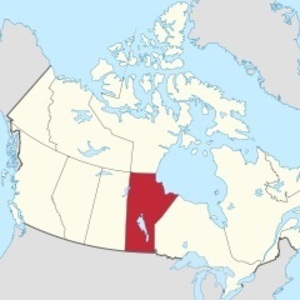Manitoba to implement cleanest fuel standards in Canada

January 28, 2020
BY Government of Manitoba
Manitoba will have the cleanest fuel standards in Canada by increasing the ethanol and biodiesel content of its transportation fuels as it implements its Made-in-Manitoba Climate and Green Plan, Premier Brian Pallister announced on Jan. 21 during his dignitary address at the annual Manitoba Ag Days exhibition.
“We have the cleanest electricity in Canada already and soon we will have the cleanest fuels in Canada too,” said Pallister. “Manitoba is leading the country once again.”
These new clean fuel standards will reduce Manitoba’s emissions by almost 400,000 metric tons cumulatively over the next five years. This is the equivalent of taking 100,000 vehicles of the road.
“Agriculture always has been and always will be the key to Manitoba’s economic success,” said Pallister. “As an important economic driver, our agriculture industry cannot take its foot off the gas, so we will make that gas greener.”
Manitoba will increase the ethanol content requirement of gasoline to 10 percent from 8.5 percent, and the biodiesel content of diesel to 5 percent from 2 percent, the premier noted. Consultations with industry, stakeholders and all Manitobans will take place in the coming months and any necessary regulation changes will be made this spring, he added.
Advertisement
Following a meeting with Prime Minister Justin Trudeau on Jan. 20, the premier is calling on the federal government for a fresh evaluation of the province’s Made-in-Manitoba Climate and Green Plan to cap the carbon tax on Manitobans.
“Manitobans deserve respect for our green agenda, our historic and significant investments in clean, green renewable energy,” said Pallister. “Our plan puts a price on carbon that is low and level, like the Prairies, and keeps more money in the pockets of Manitobans while getting the same amount of emissions reductions as the rising federal carbon tax. Our Made-in-Manitoba Climate and Green Plan is better for the economy, better for the environment and better for Manitoban families.”
The announcement builds on the government’s climate change and green initiatives to make Manitoba the cleanest, greenest, and most climate resilient province in Canada, through its Made-in-Manitoba Climate and Green Plan. This includes:
•investing billions of dollars invested in clean, renewable hydroelectric energy;
• eliminating, once and for all, the use of coal for electricity generation;
Advertisement
• providing over $200 million for the GROW and Conservation Trust programs to sustain investments in cleaner air, water and soil management;
• creating watershed management strategies;
• establishing Efficiency Manitoba demand-side management;
• introducing fuel-efficiency measures for the trucking industry; and
• working with the private sector to eliminate the use of plastic bags.
Related Stories
U.S. fuel ethanol capacity fell slightly in April, while biodiesel and renewable diesel capacity held steady, according to data released by the U.S. EIA on June 30. Feedstock consumption was down when compared to the previous month.
XCF Global Inc. on July 8 provided a production update on its flagship New Rise Reno facility, underscoring that the plant has successfully produced SAF, renewable diesel, and renewable naphtha during its initial ramp-up.
The U.S. EPA on July 8 hosted virtual public hearing to gather input on the agency’s recently released proposed rule to set 2026 and 2027 RFS RVOs. Members of the biofuel industry were among those to offer testimony during the event.
The U.S. exported 31,160.5 metric tons of biodiesel and biodiesel blends of B30 and greater in May, according to data released by the USDA Foreign Agricultural Service on July 3. Biodiesel imports were 2,226.2 metric tons for the month.
The USDA’s Risk Management Agency is implementing multiple changes to the Camelina pilot insurance program for the 2026 and succeeding crop years. The changes will expand coverage options and provide greater flexibility for producers.
Upcoming Events










